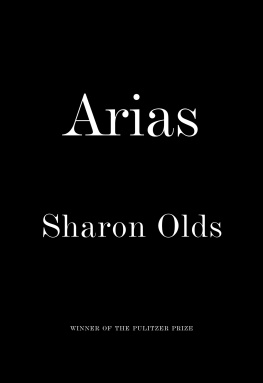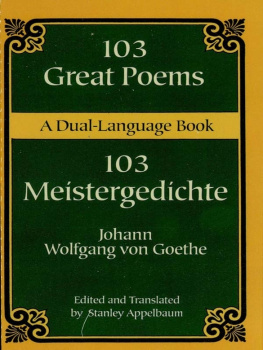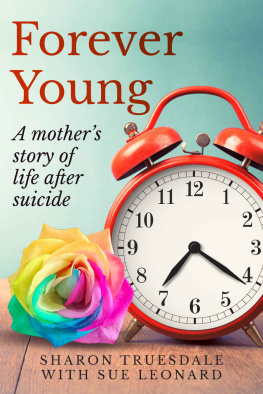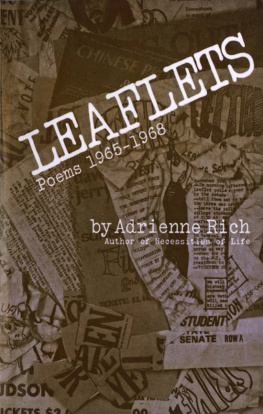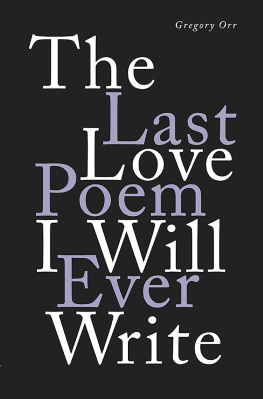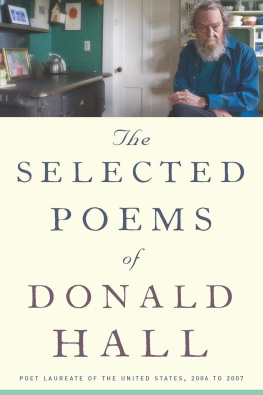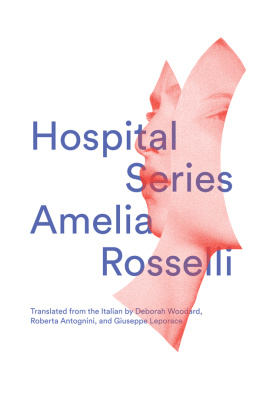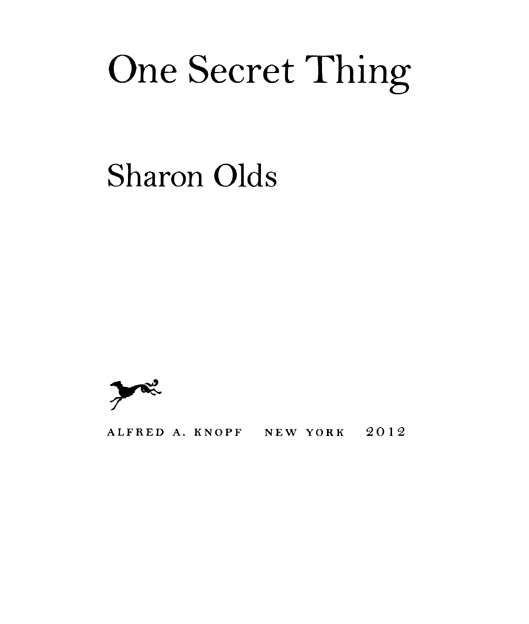ALSO BY SHARON OLDS
Strike Sparks: Selected Poems, 19802002The Unswept RoomBlood, Tin, StrawThe WellspringThe FatherThe Gold CellThe Dead and the LivingSatan Says THIS IS A BORZOI BOOK
PUBLISHED BY ALFRED A. KNOPF Copyright 2008 by Sharon Olds All rights reserved. Published in the United States by Alfred A. Knopf, a division of Random House, Inc., New York, and simultaneously in Canada by Random House of Canada Limited, Toronto. www.aaknopf.com Knopf, Borzoi Books, and the colophon are registered trademarks of Random House, Inc. cm.
eISBN: 978-0-307-80437-2
I. cm.
eISBN: 978-0-307-80437-2
I.
Title.
PS 3565.l34 O 54 2008
811.54dc22 2008019607 v3.1
Contents
Acknowledgments
Special thanks to the editors of the following publications where these poems, some of which have been revised, first appeared:
The American Poetry Review: Money, Maiden Name,
Paterfamilias, When Our Firstborn Slept In, The Scare,
Pansy Coda, The Music, Two Late Dialogues, Little End Ode, Last Hour, Mom as Comet
Antioch Review: Free Shoes
Brick: The Float
Five Points: Behavior Chart, Good Measure
Massachusetts Review: The Body
The Missouri Review: What Could Happen
Ms.: One Secret Thing
The New England Review: The Leader
The New Yorker: Easter 1960, The Space Heater, Self-Exam, The Last Evening, Her Creed
The Paris Review: Calvinist Parents
Ploughshares: The Couldnt
Poetry: Legless Fighter Pilot, When He Came for the Family, The Signal, Home Ec, Still Life
Poetry London: Animal Dress, Satin Maroon
Tin House: At Night
Tri-Quarterly: Western Wind
Everything
Most of us are never conceived. Many of us are never born we live in a private ocean for hours, weeks, with our extra or missing limbs, or holding our poor second head, growing from our chest, in our arms. And many of us, sea-fruit on its stem, dreaming kelp and whelk, are culled in our early months. And some who are born live only for minutes, others for two, or for three, summers, or four, and when they go, everything goesthe earth, the firmament and love stays, where nothing is, and seeks.
PART ONE : War
War
1. Woman with the Lettuce
They are crowded in a line being shoved toward a truck.
Some seem stunned, some sick with fear. She stands slightly outside the line, black hat clamped on her head, mouth compressed. In her hands she holds an oversized lettuce, its white stems and great, pale, veined leaves unfolded in the dense air. She stares directly at the camera, the large, delicate plant in her grip, its glowing vanes reaching out. Furious, she takes her last chance to look right at us.
He takes his right calf in his hand, lifts the whole leg up, straight, turns, and swings it into the cockpit, sliding into the seat. The left leg he bends by hand at the knee, pulls it in, and slams the hatch, then in his aircraft he rises over the hills. In the sky no one can walk, everyone is a sitting duck, he banks and begins to hunt. He is not afraid of anything now, not even his coffinhell, he is part native oak already, and if he lost his arms hed replace them. All he wants is to bag as many as he can, crash them into the ground like birds into a sack with their useless legs trailing out the mouth of it.
When the men and women went into hiding, they knew what could happen if the others caught them. They knew their bodies might be undone, their sexual organs taken as if to destroy the mold so the human could not be made anymore. They knew what the others went forthe center of the body, and not just for the agony and horror but to send them crudely barren into death, throwing those bodies down in the village at dawn to show that all was ended. But each time the others dumped a body in the square, a few more people took to the woods, as if springing up, there, from the loam dark as the bodys wound.
4. The Dead
The ground was frozen, the coffin-wood burned for fuel.
So the dead were covered with something and taken on a childs sled to the cemetery in the subzero air. They lay on the snow, some wrapped in rough cloth bound with rope, like the trees ball of roots when it waits to be planted; others wound in sheets, their gauze, tapered shapes stiff as cocoons which will split down the center when the new life inside is prepared; but most lay like corpses, their coverings coming loose, naked calves hard as corded wood spilling from under a tarp, a hand reaching out as if to the bread made of glue and sawdust, to the icy winter, and the siege.
5. When He Came for the Family
They looked at their daughter standing with her music in her hand, the page covered with dots and lines, with its shared language. They knew families had been taken. What they did not know was the way he would pick her cello up by the scroll neck and take its amber torso-shape and lift it and break it against the fireplace.
The brickwork crushed the close-grained satiny wood, they stood and stared at him.
6. The Signal
When they brought his body back, they told his wife how hed died: the general thought they had taken the beach, and sent in his last reserves. In the smokescreen, the boats moved toward shore. Her husband was the first man in the first boat to move through the smoke and see the sand dark with bodies, the tanks burning, the guns thrown down, the landing craft wrecked and floored with blood. In the path of the bullets and shells from the shore, her husband had put on a pair of white gloves and turned his back on the enemy, motioning to the boats behind him to turn back.
After everyone else on his boat was dead he continued to signal, then he, too, was killed, but the other boats had seen him and turned back. They gave his wife the medal, and she buried him, and at night floated through a wall of smoke, and saw him at a distance standing in a boat, facing her, the gloves blazing on his hands as he motioned her back.
7. The Leader
Seeing the wind at the airport blowing on his hair, lifting it up where it was slicked down, you want to say to the wind, Stop, thats the leaders hair, but the wind keeps lifting it and separating the thin strands and fanning it out like a weed-head in the air. His brows look bright in the airport glare, his eyes are crinkled up against the sun, you want to say to his eyes, Stop, you are the leaders eyes, close yourselves, but they are on his side, no part of his body can turn against him. His thumbnail is long and curvedit will not slit his throat for the sake of the million children; his feet in their polished shoes wont walk him into the propeller and end the war.
His heart wont cease to beat, even if it knows whose heart it isit has no loyalty to other hearts, it has no future outside his body. And you cant suddenly tell his mind that it is his mind, get out while it can, it already knows that its his mind much of its space is occupied with the plans for the marble memorial statues when he dies of old age. Theyll place one in every capital city of his nation around the worldLagos, Beijing, So Paolo, New York, London, Baghdad, Sydney, Paris, Jerusalem, a giant statue of him, Friend to the Children of the leaders country which will mean all children, then, all those living.


